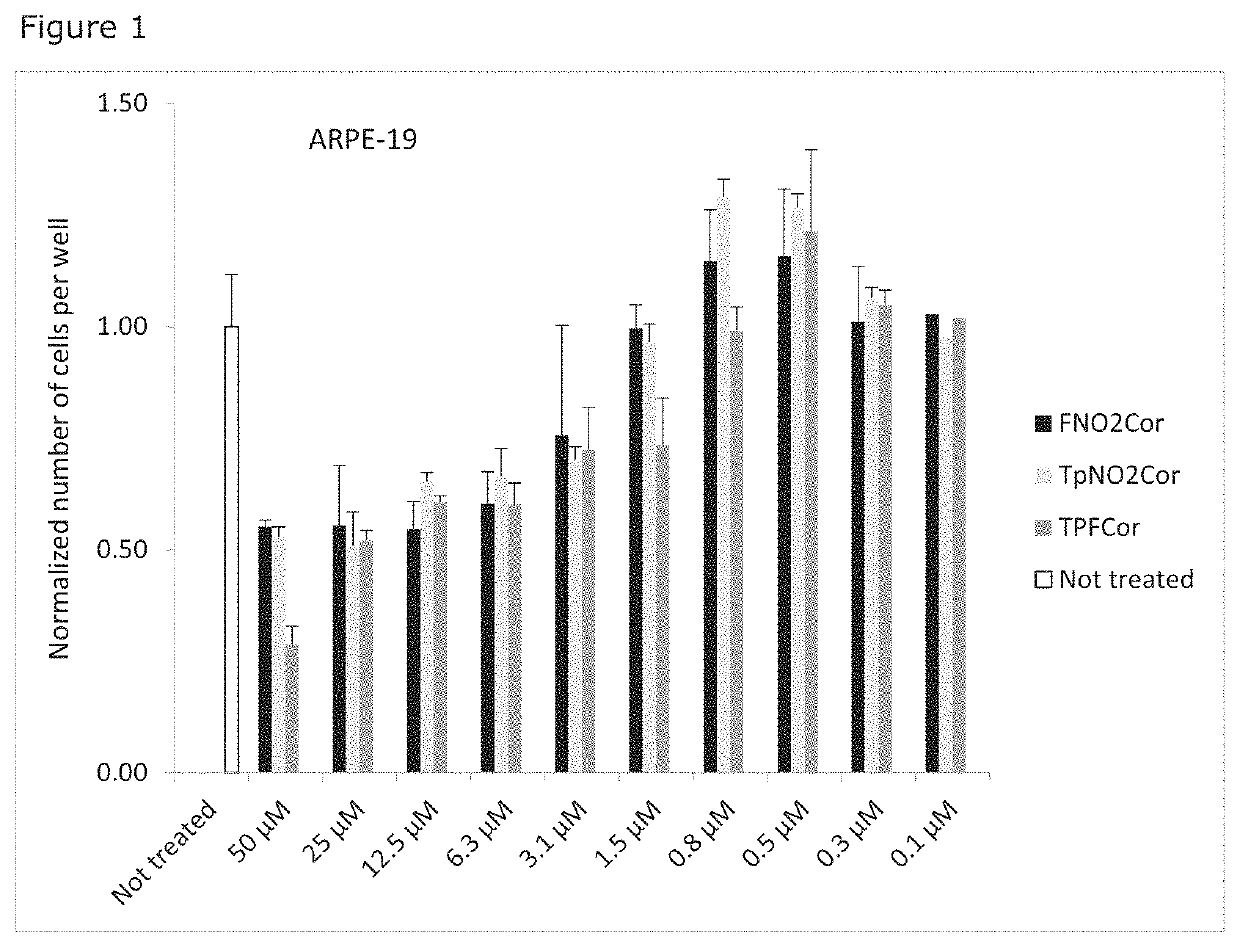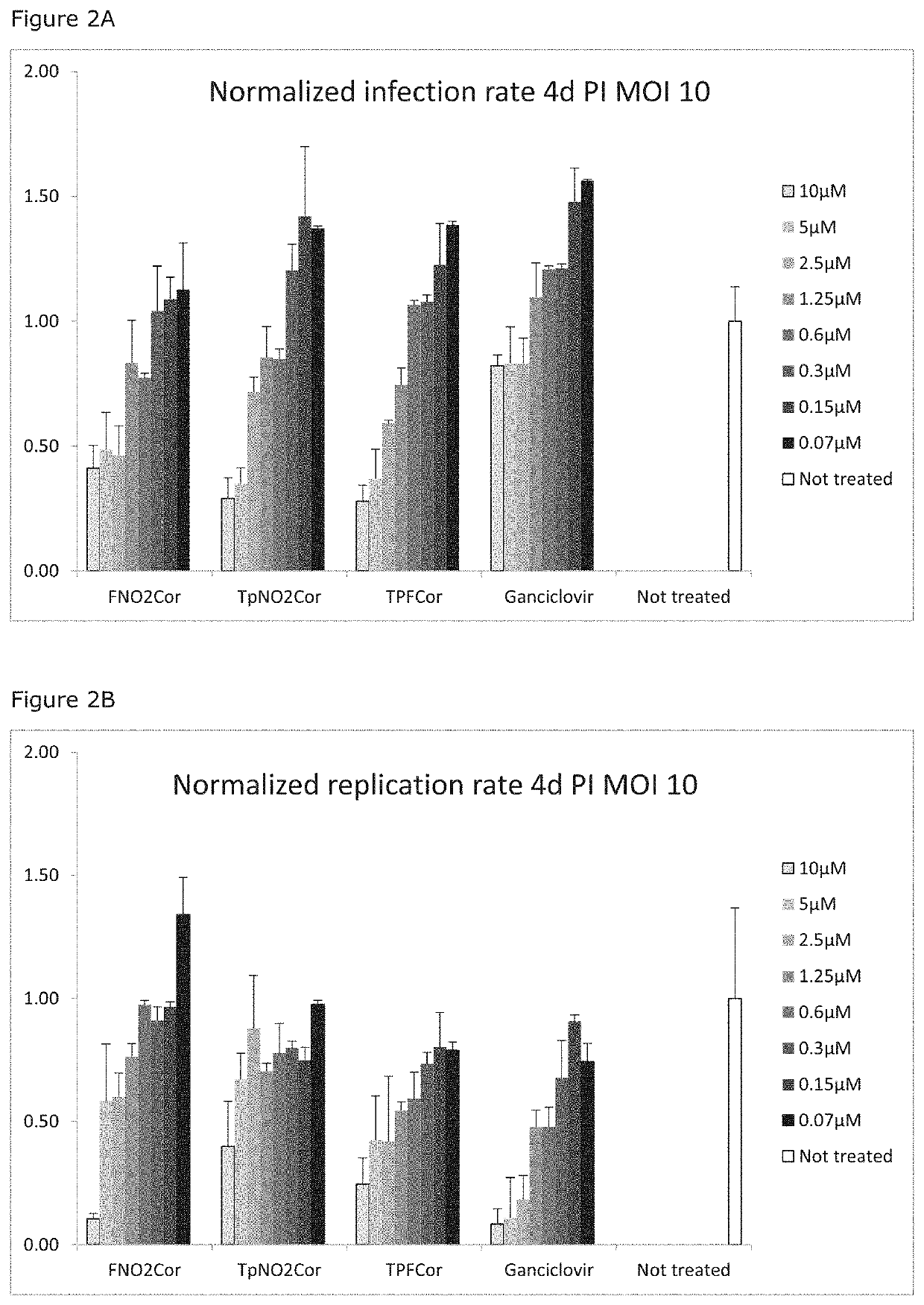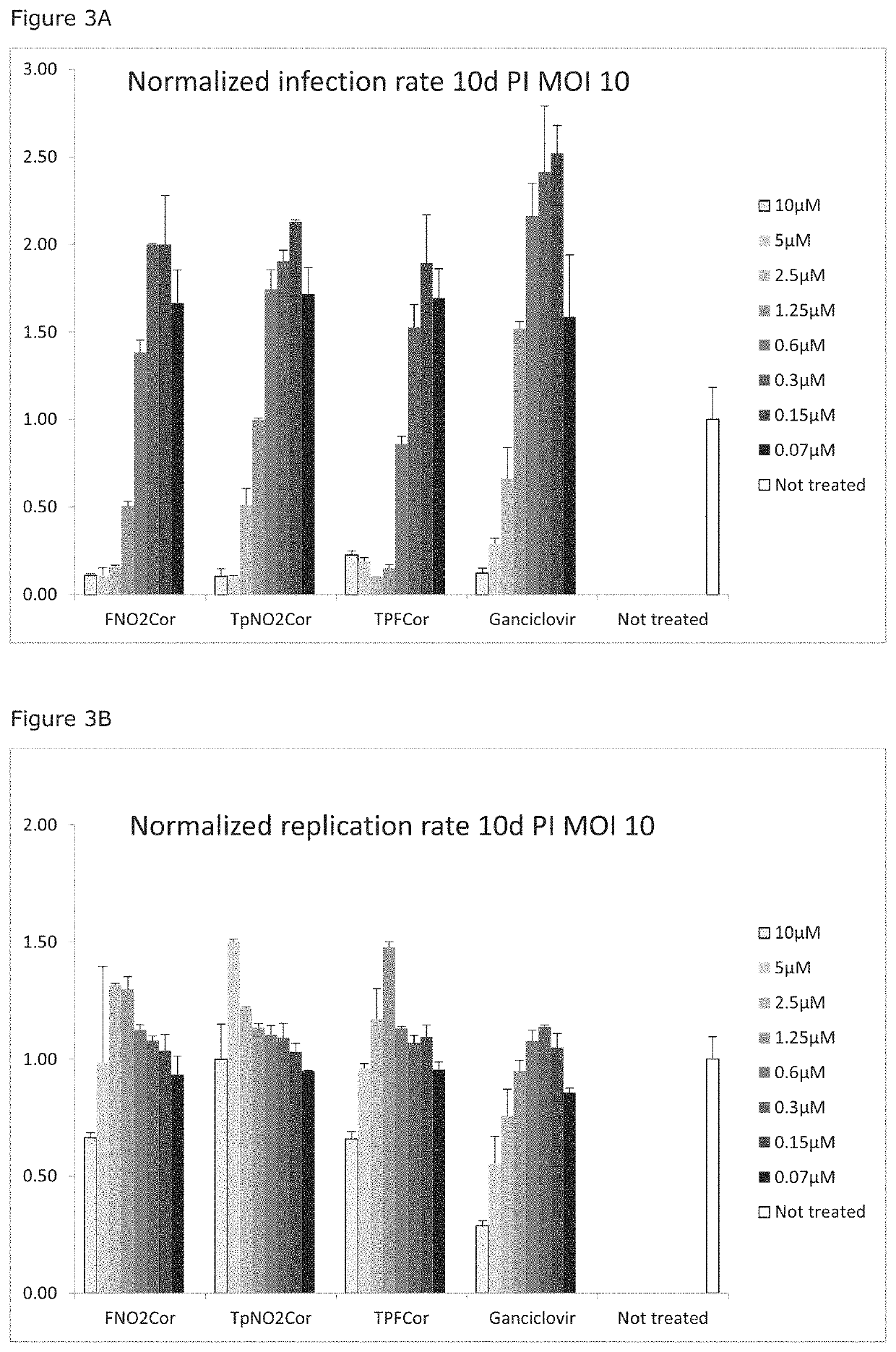Corroles for treating human cytomegalovirus infections
a technology of human cytomegalovirus and corulase, which is applied in the direction of antivirals, heterocyclic compound active ingredients, medical preparations, etc., can solve the problems of hcmv infection, hcmv strains that are resistant to antiviral agents, and many previous vaccine approaches that fail to provide complete protection against hcmv infection
- Summary
- Abstract
- Description
- Claims
- Application Information
AI Technical Summary
Benefits of technology
Problems solved by technology
Method used
Image
Examples
examples
[0131]1. Materials and Methods
[0132]1.1 Preparation of Corroles of the Invention
[0133]All the chemical and solvents were of analytical grade and used without any further purification. Silica gel 60 (70-230 and 230-400 mesh, Sigma Aldrich) were used for column chromatography. Reactions were monitored by thin layer chromatography, UV-Vis spectroscopy and mass spectrophotometry. Chromatographic purification on column was performed on silica gel 60 (70-230 mesh, Sigma Aldrich. 1H NMR spectra were recorded on a Bruker AV300 spectrometer (300 MHz). CDCl3 was used as solvent (except when indicated) and TMS as internal reference; the chemical shifts (δ) are given in ppm relative to residual CHCl3 (7.26 ppm). All data were processed with TopSpin. MALDI / TOF mass spectra were recorded on Bruker Ultraflex Extreme MALDI Tandem TOF Mass Spectrometer. UV-vis spectra were measured on a Cary 50 spectrophotometer using CH2Cl2, CHCl3 or THF as solvent.
[0134]General procedure #1 according to a modified...
PUM
| Property | Measurement | Unit |
|---|---|---|
| stress | aaaaa | aaaaa |
| drug resistance | aaaaa | aaaaa |
| adsorption | aaaaa | aaaaa |
Abstract
Description
Claims
Application Information
 Login to View More
Login to View More - R&D
- Intellectual Property
- Life Sciences
- Materials
- Tech Scout
- Unparalleled Data Quality
- Higher Quality Content
- 60% Fewer Hallucinations
Browse by: Latest US Patents, China's latest patents, Technical Efficacy Thesaurus, Application Domain, Technology Topic, Popular Technical Reports.
© 2025 PatSnap. All rights reserved.Legal|Privacy policy|Modern Slavery Act Transparency Statement|Sitemap|About US| Contact US: help@patsnap.com



